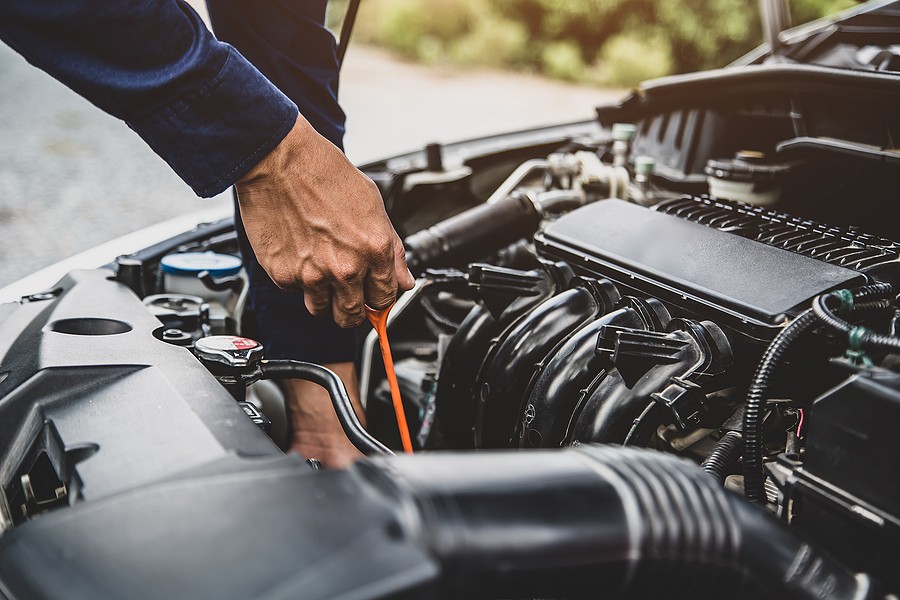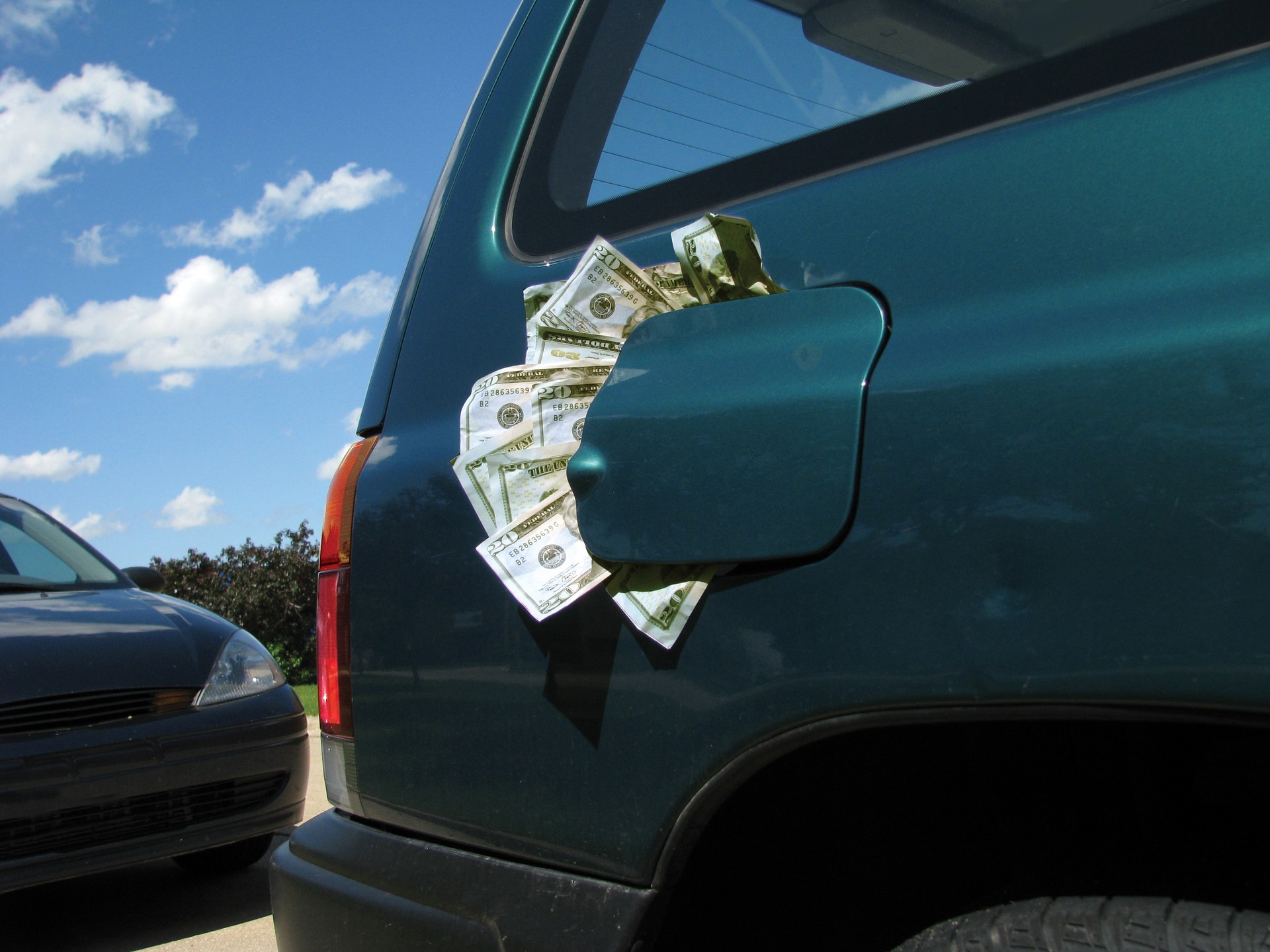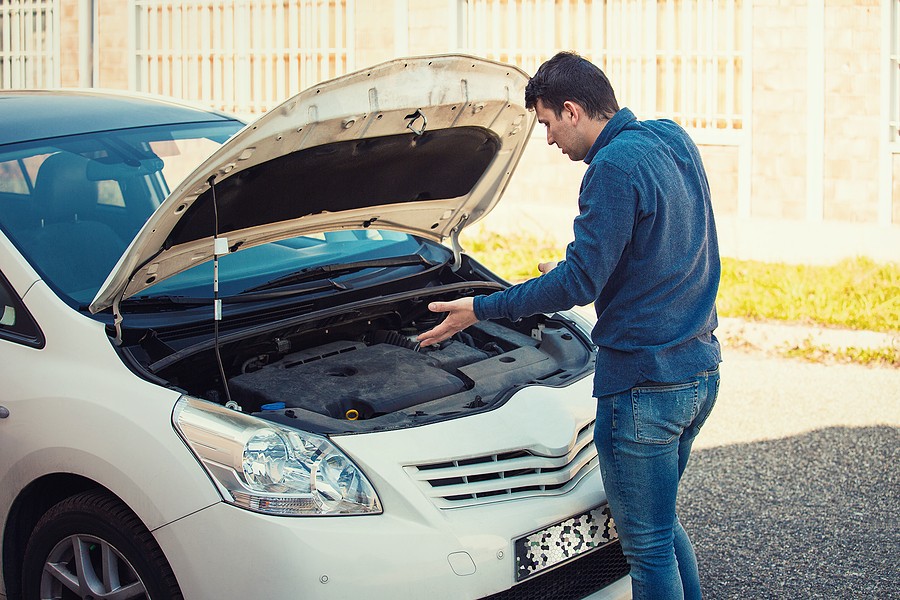If your car is sputtering, emitting a strange odor, or running rough, it might need a new catalytic converter. A catalytic converter is a device that helps to clean up the exhaust from your car by converting harmful pollutants into less harmful ones. Unfortunately, when it fails, it can cause all sorts of problems for your car and the environment.
This article will look at the signs that might indicate your car needs a new catalytic converter. Read on for more details about “Signs Your Car Might Need A New Catalytic Converter.”

What is a catalytic converter, and what does it do?
The catalytic converter is a device with two main jobs: to help your car run more smoothly and reduce the number of harmful emissions that come out into the environment. It does this by using chemicals and heat to break down certain gases and unwanted pollutants, like carbon monoxide and nitrogen oxide, which come out of your exhaust system.
How does a catalytic converter help make cars run more smoothly?
For a car to run properly, it needs a mixture of air and gas that provides the right kind and amount of energy. Since there are different amounts of energy in different kinds of fuel, gasoline engines need a mix with more gasoline than air, which they get from the carburetor. But if there is too much gasoline, the engine runs rough because the air doesn't have enough energy to create combustion. This can be solved using what's called enrichment, which adjusts how much fuel gets put into the air mixture depending on how fast your car is running at that time.
The catalytic converter helps by breaking down carbon monoxide and unburnt hydrocarbons before they get to the enrichment system. The conversion process releases extra energy into the air mixture, which makes your car run more smoothly and reduces harmful emissions.

The signs that your car might need a new catalytic converter
Since the catalytic converter is an essential part of your car's exhaust system, any problems with it can cause all sorts of issues for your engine. This is especially true if you continue to drive your car even though it's not running right. The following are all good signs that your catalytic converter might be on the fritz:
1. Car running roughly or difficult to start
the first and most common sign of a bad catalytic converter is when your car is running roughly or having a lot of trouble starting. This happens because the catalytic converter isn't working correctly, and so it's unable to process the harmful pollutants and gases that come out of your engine. That means they build up inside the exhaust system, and so when your car tries to run, it can't do it as well anymore.
2. Strange smell in the exhaust
Another sign you might need a new catalytic converter is if you start to notice a strange odor coming from under your hood or toward the back end of your car or truck. This odor might be from rotten eggs (indicating sulfur) to an excessively sweet smell (indicating coolant). Whatever type of scent you notice, though, it's not something you'd want lingering around for very long, so consider having your catalytic converter checked right away.
3. Your check engine light comes on
Another sign your car might need a new catalytic converter is when your check engine light turns on. This warning light can be on for many different reasons, not just the catalytic converter. However, it's something to investigate further if you're already having problems with your exhaust system and getting strange smells from your tailpipe.
4. Trouble passing a smog test
The next common problem for people whose cars have bad catalytic converters is passing state emission tests or smog inspections. State law requires all vehicles being driven on public roads to pass these tests, so if your car fails its emissions inspection, then you'll likely need to replace the catalytic converter as soon as possible.
5. Engine revving at high RPMs
Another sign your car might need a new catalytic converter is when the engine seems to be revving higher than usual, even when you're not pressing down on the gas pedal that hard. The catalytic converter's job is to convert harmful chemicals and gases into less harmful ones. It does this by using catalyst material inside it and then increasing temperatures and pressure for this reaction to happen faster and more efficiently. If your catalytic converter has failed, though, then this chemical reaction can't take place as it should anymore, which means your engine ends up having to work harder to get the same results. As a result, you'll notice that your RPMs are higher when you try to accelerate.
6. Engine overheats easily
Another common sign of a bad catalytic converter is when the engine starts to overheat more quickly than it normally would under normal circumstances. Again, the reason for this is that your catalytic converter isn't able to do its job anymore due to degradation or malfunction. This means that although heat is still being generated in your engine, the amount that escapes into your exhaust system is far less than what should be making its way out. This causes an increase in pressure and temperature inside the manifold and cylinders, which then end up causing more heat overall throughout the whole system. If enough heat builds up, it can damage components like hoses, gaskets, and seals.
7. Leaking from the tailpipe
Finally, another major sign that you might need a new catalytic converter is when there's exhaust leaking from underneath your car or truck around the tailpipe area. This usually happens because of damage to one of the gaskets or seals surrounding this part of the system and is most often caused by excessive heat, which is also a symptom of a bad catalytic converter. If there's a leak, then not only will you have fumes coming out right in front of where you park your vehicle at home or work, but it can even be hazardous to any person standing nearby on the road if it builds up too quickly.

Can I replace a catalytic converter myself?
Replacing a catalytic converter is not an easy process, and it's not something that you should try to do on your own. To replace it, most mechanics recommend replacing the whole exhaust system because the effectiveness of the converter depends upon having good tubing and piping in place for it to work best.
It's also important to remember that this process can be very dangerous because you'll be dealing with exhaust fumes and high temperatures, so you should always take safety precautions if you ever need to replace your catalytic converter yourself. The best way to get a new catalytic converter installed is usually through an exhaust specialist, which means that you'll want to find the nearest location and call them up right away if there's any chance that your car needs one.
How much does a new catalytic converter cost?
Suppose your car does need a catalytic converter replacement. In that case, you'll likely need to invest in an entire exhaust system at the same time because of all the safety and performance issues that might arise otherwise. This is especially true if the producer recommends that the whole system be replaced when it comes to catalytic converters or any damage to other components in the system.
The average cost for a new catalytic converter can be around $300 – $1,200, depending on where you live and which vehicle you own. If you need help finding this information about your specific make and model, we recommend checking out some online forums or contacting local mechanics for more information. Unfortunately, there are no real alternatives here besides getting a new system installed for your car, so you'll want to plan and get this done as quickly as possible.
Catalytic converter replacement cost varies by vehicle type. For example, the cost of replacing the catalytic converter on a Ford F-150 is an average of $879. On the other hand, the cost of replacing the catalytic converter on a Scion TC is an average of $735. On the other hand, replacing a catalytic converter on a Ford Focus is an average of $677.

How to save on catalytic converter replacement costs?
Replacing the catalytic converter is an expensive repair. That's why you should try to save all you can. Let's take a closer look at some of the things you can do to minimize the cost of your wallet.
Tip #1: Ask your mechanic for a quote
if you have a local mechanic specializing in cars, you should ask them to check your car and give you a quote. Often they will be more than happy to help out, and most of the time, it won't cost anything at all. If not, then you could always try someone else.
Tip #2: Look online for a coupon code
there are a lot of websites that offer coupons, and if you check every Sunday, you might be able to find a decent one that can save you a bit off the total price. Plus, it's always good to check as many different places as possible because there's no telling what kind of deals other companies have going on at the moment.
Tip #3: Do your research first
try to learn as much as possible about how catalytic converters work and whether or not they're worth getting replaced. It depends on where your car was made and how old it is, but most cars will end up needing them after a certain period. If this happens, you should be thinking about getting it replaced as quickly as possible to avoid paying too much for your car over time.
Tip #4: Look up local scrap yards for a cheap one
lookup the nearest scrap yard and ask them if they have any catalytic converters that you could buy from them. This usually works out well because you'll have a brand new part at a fraction of the cost, but keep in mind that it might not fit perfectly if your car needs a custom style.

Tip #5: Think about using a cheap aftermarket converter
if neither of these options works out for you, you should consider buying an aftermarket converter instead. Depending on which company made your vehicle, they're cheaper and sometimes easier to install. Plus, they can work just as well as an OE part, so you'll be able to get the job done without having to worry about them failing.
Tip #6: Find your part online
if you're looking for a new catalytic converter, you should check some popular online retailers first. This will allow you to find exactly what you need without having to go out of your way or spend too much money in the process. We recommend checking Amazon, eBay, Craigslist, and Auto Parts Warehouse.
Tip #7: Shop around for prices
before making a final decision on which retailer to use, make sure that you shop around for prices first. Even if they are generally cheaper than other options, there may be a couple of places that can give you an even better deal. This is particularly true if you have enough time to wait for your catalytic converter in the mail.
Tip #8: Get it replaced professionally
if you've researched everything above and still can't find a good price, there's always the last resort option of getting the part replaced by a professional company instead. You'll get done much more quickly and be back on the road within hours, but this will cost more than what you would normally pay for such a replacement. However, it might be cheaper than investing in something new entirely.
Conclusion
Do you think your car might need a new catalytic converter? If so, then it's important to make sure you know all of the signs and what they could mean. The article above has provided some great tips for saving money on such an expensive repair by looking up local scrap yards or online coupons.
These are just two examples of how you can save without having to spend too much time hunting down deals in person. However, if neither of these options works out well for you, consider buying a cheap aftermarket part instead, which will help keep your vehicle running smoothly at a fraction of the cost. In any case, do your research before making a final decision because there may be other places that have better prices than where you started shopping.
You should also keep in mind that getting it replaced professionally can be just as fast but will cost more than doing the work yourself. However, it might be cheaper than investing in something brand new entirely.



